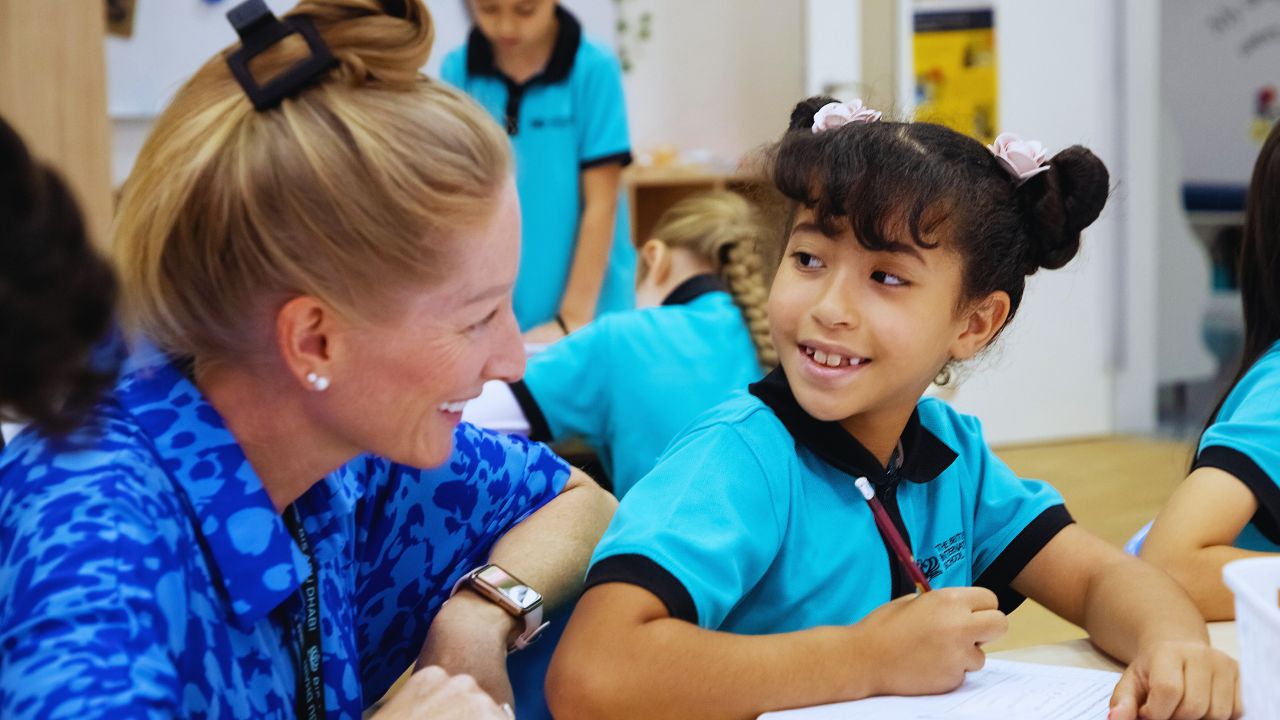
The UAE’s most popular international curriculum explained – from Key Stages to exam boards and blended pathways
When families in the UAE start researching schools, one curriculum often stands out: the British Curriculum (also known as the National Curriculum for England).
According to the KHDA, around 36% of Dubai’s private school students are enrolled in British curriculum schools – making it the most popular international curriculum in the emirate.
Why is it so popular? Globally trusted and adaptable, the British Curriculum combines a clear academic structure with internationally recognised qualifications such as IGCSEs and A Levels, and it has a proven track record of preparing students for university in the UK, the US, Europe and beyond.
For parents seeking a globally portable education with solid academic foundations, the British pathway inspires confidence in both the journey and the destination.
But what does the British Curriculum involve, how is it adapted for UAE students, and what do educators here say about its strengths? Here’s what you need to know.
What is the British Curriculum in the UAE?
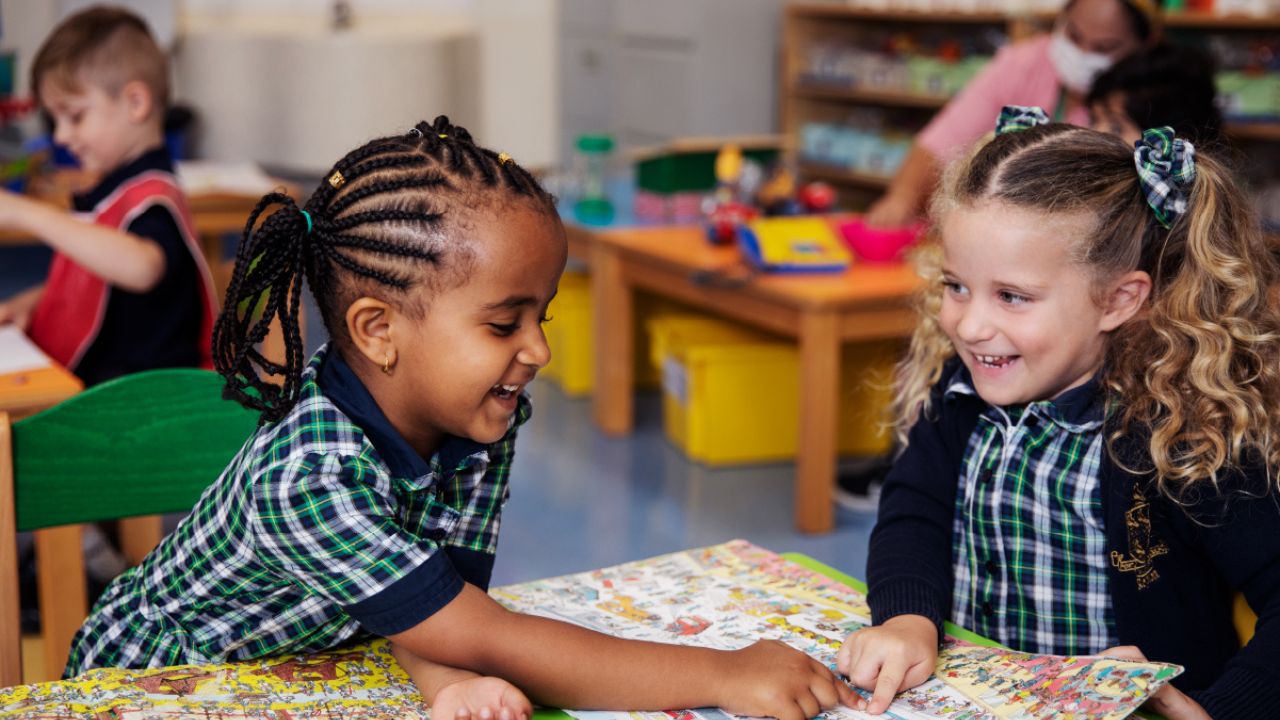
At its heart, the British Curriculum is organised around Key Stages that guide pupils from early learning through to university entry:
- Early Years Foundation Stage (EYFS) (ages 3–5): play-based learning that develops communication, early literacy and numeracy, and personal growth.
- Primary (Key Stages 1 & 2) (ages 5–11): a broad base across English, Maths, Science, Humanities and the Arts.
- Secondary (Key Stages 3 & 4) (ages 11–16): a wide subject range culminating in IGCSE or GCSE examinations.
- Post-16 / Sixth Form (Key Stage 5) (ages 16–18): specialisation in A Levels; some schools also offer the IB Diploma or BTEC for flexibility.
In the UAE, schools follow a similar structure as the UK but with mandated local adaptations: Arabic (for all students, with separate tracks for native and non-native speakers), Islamic Education (for Muslim students) and Moral Education, in line with KHDA and national requirements.
“The British Curriculum is valued for its clarity, structure, and proven academic rigour. It provides a well-sequenced, subject-specific pathway with depth in learning and clear progression at every stage,” says Jane Clewlow, Head of Senior School at Brighton College Dubai.
“It allows pupils to explore subjects in depth and specialise in their strengths, all within a framework that champions independence, critical thinking and a love of learning.”
Why does the British Curriculum appeal to families in the UAE?
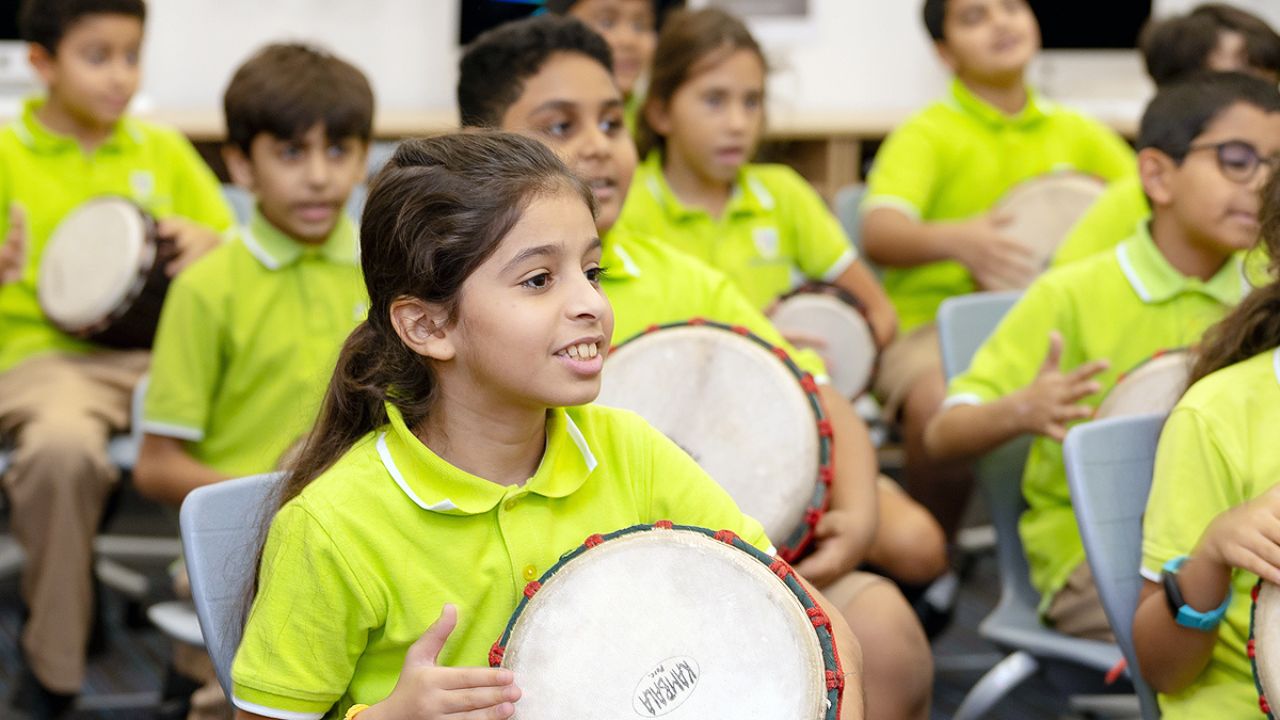
Families consistently point to global recognition, predictable structure and academic depth as reasons for choosing the British system. It offers continuity for expatriates who may relocate, while also providing a clear, step-by-step pathway from EYFS through to university admission.
At The British International School Abu Dhabi (BIS Abu Dhabi), Jane Burt, Assistant Head of Primary, explains: “The British Curriculum is a popular choice in the UAE for its clear structure, academic rigour, and holistic approach.
With a strong foundation in English, Maths and Science, it also nurtures creativity, critical thinking and personal growth – preparing students for both exams and life beyond the classroom. Globally trusted and adaptable, it gives families confidence in their child’s education and future prospects.”
How does it differ from other curricula?
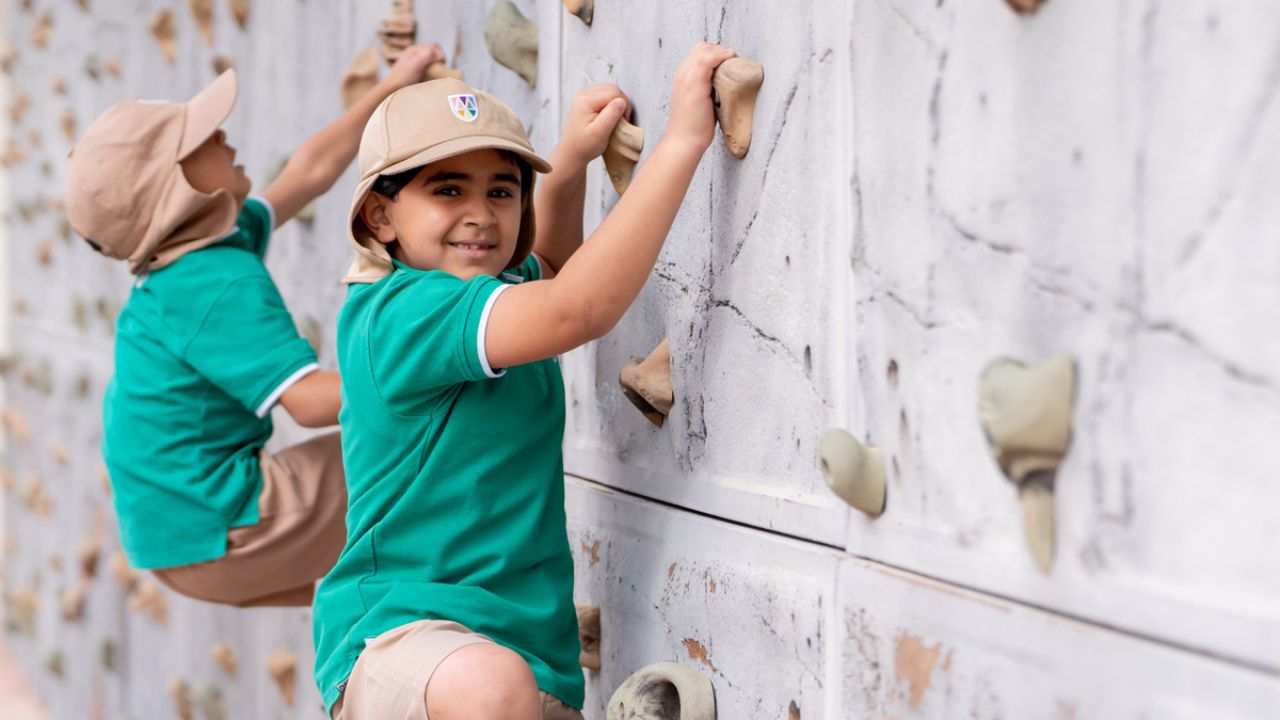
The UAE offers one of the world’s most diverse educational landscapes, with 17 curricula across the UAE’s private school sector, including British, IB, American, CBSE/Indian, French, and German. Each has its own philosophy:
- British (IGCSE – A Levels / BTEC): depth and subject specialisation in later years.
- IB: structured breadth across six subject groups, encouraging balance and inquiry.
- US: broad curriculum to graduation, with continuous assessment and GPA weighting.
“Qualifications such as GCSEs and A Levels are globally recognised and respected by universities and employers. For pupils who want depth and subject mastery, the British pathway offers an unparalleled foundation,” adds Jane Clewlow.
You might also like: The UAE parents’ guide to choosing a school
Is the British Curriculum in the UAE identical to the UK?

The structure, rigour and expectations remain identical to the UK, but schools in the UAE integrate important local elements:
- Arabic language study for all students.
- Islamic Education for Muslim students.
- Moral Education, mandated from Year 2 to Year 13.
- Regular inspection and oversight by KHDA (Dubai), ADEK (Abu Dhabi) and SPEA (Sharjah).
“What sets the British Curriculum experience in the UAE apart is the rich blend of academic excellence and cultural diversity,” says Victoria Juett, Assistant Head of Secondary at BIS Abu Dhabi.
“With over 90 nationalities represented, learning is enriched by diverse perspectives and a deep respect for local culture. Students benefit from both a world-class British education and meaningful integration of Emirati heritage.”
Brighton College Dubai echoes this view. Jane Clewlow notes: “We integrate Arabic and Islamic Studies in line with MoE requirements and ensure that UAE heritage and international perspectives are celebrated across the curriculum.
While we maintain the standards of UK education, we tailor delivery and enrichment to a global context – preparing pupils for success both locally and internationally.”
How is the British Curriculum in the UAE kept relevant and future-facing?

British schools in the UAE emphasise that their curriculum is not static but rather future-focused.
At Brighton College Dubai, Jane Clewlow explains: “We embed digital literacy, creativity, collaboration and global citizenship across subjects. Initiatives like enterprise challenges, sustainability projects, public-speaking programmes and independent research prepare pupils to connect their learning to the wider world. Oracy, metacognition and leadership are key pillars of our approach.”
At BIS Abu Dhabi, Jane Burt and Victoria Juett add: “Future-ready skills such as critical thinking, collaboration, creativity and digital literacy are embedded across subjects. Students explore real-world issues, like climate change and social justice, through inquiry, debate and projects.
In this way, the British Curriculum remains relevant, purposeful and empowering, preparing students to thrive in the world they will inherit.”
Which exam boards do British schools in the UAE use?
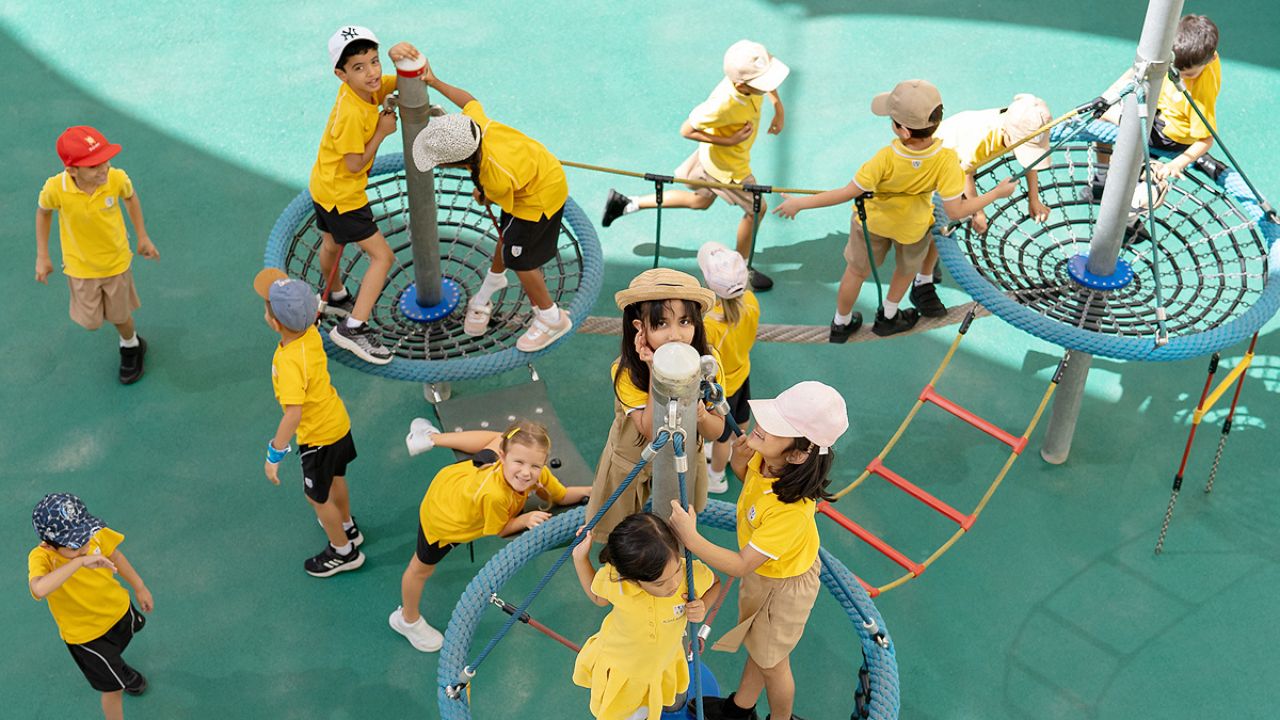
British-curriculum schools in the UAE typically work with international exam boards such as Cambridge International (CIE), Pearson Edexcel, and occasionally AQA or OCR.
At secondary level, many schools prefer the IGCSE over the UK GCSE, since it is designed for international cohorts and offers a flexible, globally benchmarked framework.
At post-16, the most common pathway is the A Level, valued for the academic depth it provides. Students usually specialise in three or four subjects, allowing them to build expertise and demonstrate mastery in areas of strength – qualities highly regarded by leading universities worldwide.
That said, an increasing number of British schools in the UAE now complement A Levels with alternatives such as the IB Diploma or BTECs. This reflects the diversity of the student body and the need for flexible routes into higher education and careers.
The IB provides breadth across six subject groups, with a strong emphasis on critical thinking and research, while BTEC offers a more vocational and applied approach.
BTEC courses are designed with input from industry professionals, ensuring that the skills and knowledge taught are relevant and up-to-date, making the transition to both university and the job market smoother.
These hybrid pathways leverage the strengths of multiple educational frameworks, providing students with greater choice and ensuring that a wide range of learning styles and future goals are catered to.
A Levels vs alternatives: quick lens for parents
- A Levels: depth and subject mastery (a strong fit for students with clear strengths).
- IB Diploma: breadth plus core components; suits all-rounders who enjoy research and reflection.
- BTEC: applied/vocational learning for hands-on pathways into university or work.
What should families ask when choosing a British school in the UAE?

Choosing a curriculum is one decision; choosing the school itself is another. On a school visit, parents might ask:
- How is academic progress tracked and reported? Look for transparent systems and regular communication.
- How are transitions supported for children joining from other systems? Many families move between curricula, so support here is crucial.
- What’s the approach to wellbeing, pastoral care and inclusion? Rigour should be matched with emotional and social support.
- Which post-16 pathways are offered (A Levels / IB / BTEC) and why? The choice impacts university admissions.
- How strong is the university and careers guidance programme? Good schools provide structured advice from early secondary years.
- What about teacher retention and development? High-quality outcomes often reflect investment in teaching staff.
“Parents should ask how pupils are both supported and challenged, and how the school adds value beyond exam results,” says Jane Clewlow.
Michael Threlfall, Head of Admissions at BIS Abu Dhabi, adds: “Look beyond league tables. Observe how warmly children are greeted, how staff interact, and whether the school feels like somewhere your child will be known and inspired to thrive.”
Choosing with confidence

The British Curriculum in the UAE offers families a distinctive blend of structure, academic depth, and international recognition, all adapted to the local context through the inclusion of Arabic, Islamic, and Moral Education requirements.
Oversight from KHDA, ADEK and SPEA provides accountability, while schools themselves innovate to keep learning relevant and forward-facing.
Ultimately, while the curriculum provides the framework, the real difference lies in how each school delivers it – through teaching quality, pastoral care, enrichment, and pathways into higher education.
With the right questions and research, parents can find a British-curriculum school in the UAE where their child will not only succeed academically but truly flourish.
Follow Yalla for more education tips
